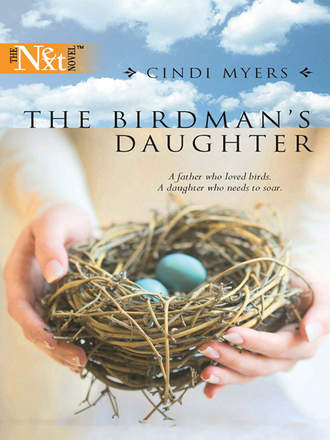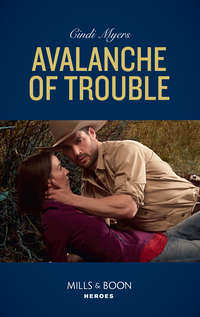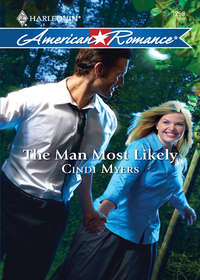
Полная версия
The Birdman's Daughter
She’d rushed to calm him, her voice soothing, her eyes full of such tenderness he’d started to weep. She’d patted his hand and brushed the hair back from his face until he fell into a drugged sleep.
His Karen did not look at him that way. Her eyes held suspicion. Caution.
It seemed to him his daughter had been born holding back. She’d been almost two weeks late in arriving into the world. The doctors had been discussing inducing labor when Sara’s contractions finally began in earnest.
Later, after she’d been cleaned up and swathed in a diaper and gown and knit hat and booties, a nurse had thrust her into his arms. He’d looked at her, terrified. She seemed so impossibly small and fragile. She’d opened her eyes and stared up at him with a grave expression, as if even then she didn’t trust him to look after her.
Sara had taken over after that—feeding and fussing and diapering, shooing him out of the way.
He’d done what his own father had done, what most of the other fathers he knew did back then. He’d stayed out of the way. He’d gone to work and turned his paychecks over to Sara.
He’d come home from business trips and in his absence the two children (Delwood had been born by this time) and his wife had formed a cozy family unit in which he was the outsider.
He remembered once volunteering to dress Karen, then about three, while Sara fussed over Del. Within five minutes, his daughter was in tears and he looked on, dismayed, with no idea what to do.
“Not that dress. She hates that dress.” Sara rushed into the room, Del tucked under one arm, and snatched the offending garment from Martin’s hand. “And she can’t wear those shoes. They’re too small. Go on.” She shooed him from the room. “I’ll take care of this. Wait for us outside.”
The outdoors became his retreat. Those were early days, when he still thought of birding as a hobby. He knew he was good at it. Already his list numbered over a thousand birds. But as he spent more and more time searching for difficult-to-find species, and as he began to gain recognition from fellow birders, the idea of being one of the elite big listers became more and more alluring.
Here was his talent. His niche. The one place where he wasn’t dismissed as incompetent or unnecessary. He wasn’t blind to the knowledge that the records and rewards had come at a price. He was aware of how dearly he’d paid whenever his daughter looked at him and he saw the doubt in her eyes.
But it was easier to go out again and search for a rare species of bird than to overcome those doubts after all these years. Easier and, for him at least, the outcome was more certain.
Casey smoothed back his hair, straightened his shoulders, then pushed open the door of the lunchroom at the Houston bus station. A few customers waited in line at the cash register, but the lunch counter was empty save for the burly man who stood behind it.
“Excuse me, sir?” Casey remembered to speak up and look the man in the eye. Dad always said people trusted you more if you looked them in the eye.
“Yeah?” The man didn’t look very happy to see Casey but then, he was probably one of those people who weren’t happy in general.
“I was wondering if I could wash dishes or sweep up or something, in exchange for a meal.” Casey thought the approach was right—not too cocky, but not too downtrodden, either.
The man’s expression didn’t change. “If you want a meal, you’ll have to pay for it.”
“That’s how it usually works, isn’t it? Only thing is, my money was stolen.” He took a few steps closer, gaze still steady on the man behind the counter. “I had my wallet in my backpack and this ex-con who was sitting next to me on the bus lifted it while I was sleeping.”
The man shook his head. “You should have known better than to put your wallet somewheres where he could get his hands on it.”
“Yeah, I should have. Guess I learned my lesson about that one.” He shrugged. “So here I am, one dumb kid, not quite as dumb as when I started out on this trip.”
The man seemed to think that was funny. He chuckled. “Where you headed?”
“To Tipton.” He took a chance and slid onto a stool in front of the man. “I’m going down to help my mom look after my grandpa. He had a stroke.”
“That’s too bad. How old a man is he?”
He calculated in his head. “He’s seventy. But he’s never been sick before, so this took everybody by surprise.”
“Where you from?”
“Denver. It’s a long bus ride from here, that’s for sure.”
“Yeah.” The man looked at him for a long moment. Casey waited, hardly daring to breathe. Finally, the man nodded. “I reckon I could fix you a burger. While I’m cooking it, you can sweep the floor.”
Casey hopped up. “Thanks!”
“Yeah, yeah.” The man waved him away. “Broom’s over there.”
Casey found the broom and began sweeping around the front counter and the tables beyond. As he worked, he hummed to himself. He didn’t feel like a loser anymore. He felt like someone who’d found a way to look after himself. He wasn’t even that mad at Denton. Maybe the state really had cut him loose without a cent. The guy probably did need that money more than Casey did. After all, Casey had talents. A man with talent would always get by.
CHAPTER 4
When one thinks of a bird, one fancies a soft,
swift, aimless, joyous thing, full of nervous energy
and arrowy motions—a song with wings.
—T. W. Higginson, The Life of Birds
Karen didn’t know if her father woke up in a rotten mood, or if her own anxiety over Casey made her impatient with him, but for whatever reason, getting Martin up and dressed was a battle. He rejected the first two shirts she chose for him before grudgingly relenting to the third, then refused to allow her to wheel him to the breakfast table, insisting on going to his study instead.
Anger burned like acid in her throat as she watched him switch on the computer, his gaze fixed on the screen as he waited for it to boot up. He apparently hadn’t noticed how upset she was, or if he had, he didn’t care enough to ask what was wrong. A person didn’t need the power of speech to show someone he cared.
“You don’t care about anyone but yourself, do you?” she snapped. “Yourself and birds you can add to your list.”
He looked up and blinked, confusion in his eyes.
“Don’t pretend you don’t know what I’m talking about.” She moved closer and bent over to look him in the eye. “You would rather sit in front of that computer all day, playing with your charts and numbers, than have a conversation with your own daughter.”
He frowned, then tapped something out on the keyboard. She looked at the screen.
Can’t talk.
“You can type, though. We can communicate that way. And you could listen, if you wanted to.”
Still frowning, he typed again.
What do you want to talk about?
“We could talk about anything. The topic doesn’t matter. We could talk about…” She looked around the room, searching for some likely topic, then decided on the one that had been utmost in her mind all morning. “We could talk about your grandsons.”
Casey and Matthew.
“I’m glad to see you still remember their names.”
How are they?
“Matthew is fine. Helping Tom with the business. He’s planning on going to college part-time next semester.”
What about Casey?
“Casey…” She looked away, unnerved by the knot of tears clogging her throat. “Casey…” She tried again, but could only shake her head.
What?
She cleared her throat and took a deep breath. “Tom called this morning. Casey’s…disappeared. I mean, we don’t know where he is right now.”
Martin’s right eyebrow rose and he leaned toward her, his expression demanding to know more.
“I don’t know.” She held out her hands, a gesture of helplessness. Exactly how she felt. “Tom says he didn’t come home last night. He’s not with his friends….”
Her father stabbed at the keyboard again.
He’s run away?
“Maybe. I don’t know. It’s so unlike him.” Casey wasn’t one of those moody, belligerent teenagers who made life so difficult for some of her friends. He was always easygoing, uncomplaining—happy, even.
He’s upset because you’re here.
“No, he isn’t. He was fine when I talked to him yesterday morning.” Why did he automatically assume this was her fault? “He’s probably staying with a friend and forgot to mention it to Tom.” She refused to believe Casey had deliberately run away—or worse, that someone had harmed him.
Police?
“Tom says he notified them. I’m sure they’ll locate him soon.” She hugged her arms across her chest. “Are you ready for breakfast?”
Coffee.
“I could use some coffee, too.” She went around to the back of his wheelchair and started to roll him toward the kitchen, but he put his right hand out to stop her.
I’ll eat here.
She frowned at him, but he matched the expression and shook his head, then turned his attention once more to the computer screen.
She turned toward the kitchen to make coffee. So much for thinking he might want to stay with her, to keep her company in her distress, or to share his own concern over his grandson. Her father dealt with this trouble as he had with every crisis in his life, by retreating to his charts and birdcalls, to the logic and order of tables and numbers.
And Karen had nowhere to retreat, nothing that offered escape from worry and frustration.
Martin had once spent the better part of two days sitting in a blind on the edge of a Scottish lake, waiting for the arrival of a pair of rare King Eider ducks which had reportedly been recently spotted in the area. His patience had been rewarded near dusk on the second day. The sight of the stocky black-and-white male and his dark brown mate gliding over the shrubby willows at the edge of the lake to land on the wet pewter surface had erased the aching from his cramped limbs and made the long wait of little consequence.
He had not been born with that kind of patience, but he had learned it as a necessary skill for success as a serious birder. And he had found the same stoicism practical in everyday life.
He knew his daughter thought him cold and callous. He didn’t have the energy to explain to her that he saw no point in becoming overly emotional and fretting. Wringing his hands or storming about wouldn’t help her locate her boy.
He was sorry to hear Casey was missing. Though he hadn’t seen the boy in a few years, he remembered his youngest grandson as a thoughtful, intelligent boy who’d shown an interest in birds and the ability to sit still for long periods of time, contemplating the world around him. Martin thought he had the potential to be a big lister, if he applied himself.
He moved the mouse to click on the desktop icon to open his e-mail account. The stroke had temporarily incapacitated him, but that didn’t mean he couldn’t stay abreast of news in the birding world. Besides, focusing on birds was calming. There was order and logic in the neatly aligned spreadsheets of birds he had seen and birds he had yet to see, deep satisfaction in the number of sightings on each continent, in each country, and within each genus. Reading through these familiar lists would be a welcome distraction from worries about one boy who was currently unaccounted for.
But first, the e-mail.
ABA recognizes Cackling Goose.
His interest sharpened when he spotted this header, and he clicked on the message. He’d been waiting for this one after hearing rumors for the past six months. Birds that were previously considered subspecies were sometimes awarded full species status, thus adding to the total of species in existence. His hand shook as he scrolled through the press release a birding acquaintance had pasted into the e-mail. The Canada Goose, Branta canadensis, had been split into large and small species, the smaller birds now being designated B. Hutchinsii, Cackling Goose.
Quickly, he shrank the e-mail file and opened his spreadsheet for North American birds. Triumph surged through him as he verified that he had seen both versions of geese at various times and locations. This allowed him to add the new bird to his life list.
He leaned toward the keyboard, straining to control his movements, to type in the new name beneath the original species. Working one-handed was laborious; several times he had to erase what he’d written and start over.
By the time he sat back and studied the new entry, sweat beaded his forehead and he was breathing heavily. His gaze dropped to the new total at the bottom of the spread sheet. Seven thousand, nine hundred and fifty.
He might reach eight thousand yet, even if his health forced him to give up traveling. New species were added every year. In the last year he’d added almost a dozen to his count. Long-dead big listers continued to add to their records through this process. Still, accumulating sightings this way was not the same as seeing new birds for himself.
He scrolled through the list, each name bringing to mind a successful hunt. He’d sighted the King Eider on a miserable cold day when the fog had settled around their party of both serious and casual birders like a shroud. The others in the group retired to a pub to banish the chill with pints of beer and glasses of malt whisky. But he’d insisted on staying outside, willing the bird to come to him.
It had arrived like an apparition out of the mist, the ink black body sharp against the gray fog, the orange shield above its bill brilliant against the bright blue crest. Martin held his breath, immobile, transfixed by this glimpse of the divine. Was it so far-fetched to think that a creature with wings was one step lower than the angels?
The King Eider was the fourth new species he’d added to his list that day. Number 3,047. In those days, he’d seen four thousand birds as a lofty goal to attain. Only later, when he’d passed four thousand and was closing in on five thousand, did he begin to think of reaching for more. Of trying to do what almost no one before him had done.
When he’d joined the others in the pub, they had groaned at the news of the sighting, and cursed his luck even as they bought him drinks. No one questioned that he had actually seen the bird. Though worldwide, the birding community was a small one, where honesty and integrity counted for everything. Martin’s reputation was unassailable. Others often said no one worked harder or was more dedicated than Martin Engel.
The respect of his colleagues was almost as important to him as the numbers on his list. When he was a child, he had sometimes felt invisible in the midst of his older and younger siblings. Their names were routinely in the local paper as winners of athletic competitions and academic honors. Trophies and award certificates lined shelves in the family room. Only Martin had no plaque or statue with his name on it. The family photo album was devoid of Martin’s accomplishments, for there were none. His parents, busy with their other talented children, had left Martin to himself. Sitting in the bleachers at the innumerable football, baseball and soccer practices of his siblings, he had discovered birds, and what grew to be an avocation, an obsession—a calling.
He glanced at the framed awards that filled one wall of his office. His parents were no longer alive to see these honors. He seldom saw his siblings, and even his children took little notice of his accomplishments most days. It didn’t matter as long as his fellow birders applauded him, and as long as he himself could look at this tangible evidence of all he’d achieved and feel satisfaction filling him, warm and penetrating as the African sun.
When he was gone, the records he’d set would live on. His grandsons could find his name in books and on Web sites, and they’d know that he’d been more than an odd little man who traveled a great deal and didn’t have much to say. They’d see that he’d made his mark on the world, and maybe they would find a way to make their mark as well.
Конец ознакомительного фрагмента.
Текст предоставлен ООО «ЛитРес».
Прочитайте эту книгу целиком, купив полную легальную версию на ЛитРес.
Безопасно оплатить книгу можно банковской картой Visa, MasterCard, Maestro, со счета мобильного телефона, с платежного терминала, в салоне МТС или Связной, через PayPal, WebMoney, Яндекс.Деньги, QIWI Кошелек, бонусными картами или другим удобным Вам способом.









